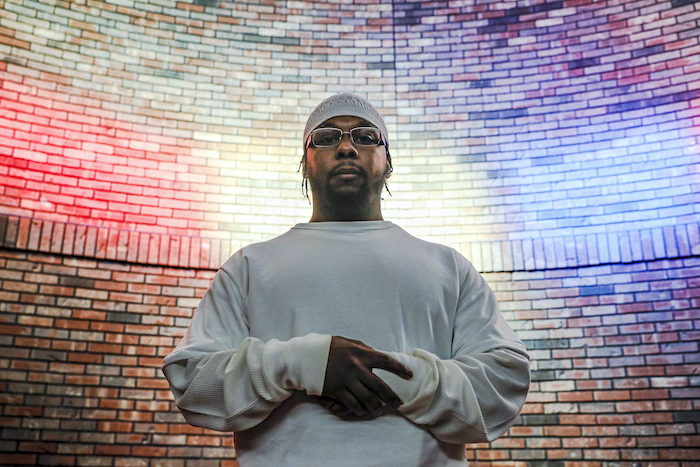Minnesota could free man serving life in child's 2002 death
Minnesota Could Free Man Serving Life In Child’s 2002 Death

Source: John Minchillo, File / AP
MINNEAPOLIS (AP) — Minnesota’s pardon board will consider freeing a Black man who was imprisoned for life as a teenager in the 2002 slaying of an 11-year-old girl hit by a stray bullet while doing homework at her dining room table.
The case scheduled for Tuesday made headlines earlier this year after The Associated Press and American Public Media uncovered new evidence and serious flaws in the police investigation, raising questions about whether Myon Burrell may have been wrongfully convicted. Last week, an independent panel of national legal experts who reviewed his conviction and sentence recommended his immediate release.
Burrell’s case will go before the Minnesota Board of Pardons, which includes Gov. Tim Walz and state Attorney General Keith Ellison, both Democrats. They will consider Burrell’s request for a pardon and commutation. The third board member, Supreme Court Chief Justice Lorie Skjerven Gildea, recused herself from the decision.
LIKE BLACKAMERICAWEB ON FACEBOOK. FOLLOW US ON INSTAGRAM & TWITTER. SUBSCRIBE TO OUR YOUTUBE.
Burrell was 16 when he was sentenced in the death of Tyesha Edwards, a Black sixth grader who was shot through the heart inside her family’s south Minneapolis home. Now 34, he has always maintained his innocence.
The case resonated long after the conviction. Sen. Amy Klobuchar, who was the city’s top prosecutor at the time, has cited it throughout her political career, including on the Democratic presidential primary debate stage, as an example of her tough-on-crime record.
The findings from AP’s yearlong investigation showed there was no hard evidence — no gun, DNA or fingerprints — tying Burrell to the shooting. Police did not collect a corner store’s surveillance video, which Burrell said could have cleared him. And video footage showed the lead homicide detective offering a man in police custody $500 for Burrell’s name, even if it was just hearsay.
Burrell’s co-defendants said the teenager was not at the scene that day. One of them, Isaiah Tyson, told AP that he, not Burrell, was the trigger man.
The findings surfaced during a year when protests of racial injustice put renewed focus on some law enforcement practices from the 1990s and early 2000s, when harsher policing and tougher sentencing led to the highest incarceration rates in the nation’s history. Those incarcerations hit Black and brown communities hardest.
Under public pressure after the AP report, Klobuchar threw her support behind the creation of the independent panel, saying it was just as important to protect the innocent as punish the guilty. The panel raised concerns about the police investigation that mirrored many of those uncovered by the AP.
The panel’s report said officers suffered from “tunnel vision” while pursuing Burrell as a suspect, homing in on evidence that supported their theory of guilt and ignoring that which may have helped him. Officers relied heavily on a single eyewitness, who offered conflicting accounts, along with jailhouse informants, who benefited generously for testifying.
Two of the informants have since recanted. One had his prison sentence cut from 16 years to three. Another said he was cooperating with police in 14 other cases.
The panel said it saw no purpose served by keeping Burrell locked up.
Panelists pointed to his age at the time of the crime, that he had no prior record and that he behaved well behind bars. They also cited U.S. Supreme Court rulings in recent years that argued against overly harsh sentences for juveniles because their brains and decision-making skills are not fully developed.
“In considering the sentence, we became profoundly aware of how our nation has changed in the way we consider juveniles who become enmeshed in the criminal justice system,” Mark Osler, who chaired the panel, wrote in the Minneapolis Star Tribune this past weekend.
Burrell was jailed during an era “marked by racially charged fear mongering about young ‘super-predators’ who would be violent for the entirety of their lives,” Osler wrote.
In the panel’s report, members of Tyesha Edwards’ family said Burrell’s continued imprisonment was a sensitive topic.
The girl’s biological father, Jimmie Edwards, said he opposed any release. He said Tyesha was doing well in school and was well-liked by classmates and teachers, “and that was just taken away from us in an instant.”
READ MORE STORIES ON BLACKAMERICAWEB.COM:
















